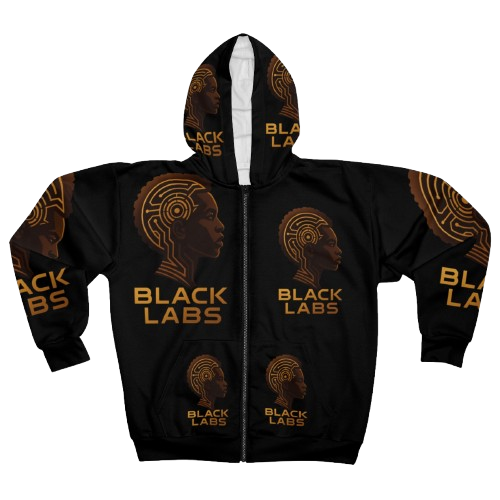✨ Oath of the Keeper of the Light ✨
"Before the All, before heaven and earth, before the ancestors and the generations to come,
I swear that I do not seek power as a throne,
but as an altar of service to the world.
🔥 I swear that my fire will not be to consume, but to illuminate.
🌍 I swear that my strength will not be to dominate, but to guard Africa´s destiny.
🌌 I swear that my name will not be exalted out of vanity,
but offered as a testimony to the Light of God within me: YAHWEH, THE GOD OF THE BLACKS™.
Let the 11th be my seal,
let heaven and the people be my confirmation,
and may the inevitable outcome find me humble, firm, and pure.
Thus it is sealed, here and now,
before the Great All."
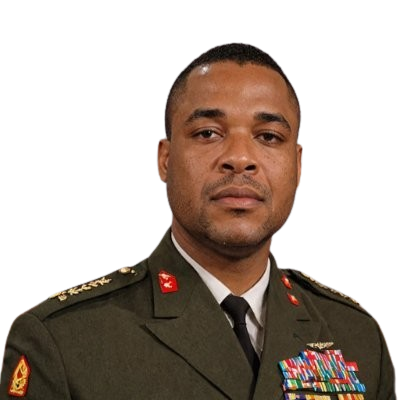


🌍 Africa Trade Center™ – The Future of African Commerce
Africa Trade Center™ is a pioneering digital marketplace and wholesale-retail hub dedicated to promoting African products within Africa and across global markets. By leveraging the African Continental Free Trade Area (AfCFTA) and zero-tariff agreements on African exports to China, we create a frictionless ecosystem where African producers, wholesalers, and retailers can connect with buyers worldwide.
Think of it as the Walmart™ + Alibaba™ of Africa: a one-stop platform where customers can discover, buy, and ship African goods online — ranging from agriculture and raw materials to manufactured goods, crafts, fashion, and technology.
🔑 Core Features
Wholesale & Retail Platform: B2B + B2C model enabling both large-scale exports and retail purchases.
Zero-Tariff Advantage: Maximize African competitiveness by optimizing AfCFTA and China-Africa agreements.
Smart Logistics: Integrated AI-driven logistics network for customs clearance, warehousing, and shipping.
Trust & Quality: Verified African producers and certification system to ensure global export standards.
Digital Payment Systems: Multi-currency settlement, including AfroCoin™, mobile money, and blockchain payments.
📦 Product Categories
Agriculture: Cocoa, coffee, tea, cashew, palm oil, fruits, vegetables.
Energy & Minerals: Gold, bauxite, cobalt, rare earths, oil & gas derivatives.
Manufactured Goods: Textiles, fashion, leather goods, furniture.
Technology: Smartphones, solar panels, EV batteries, software services.
Cultural & Creative: Art, music, films, books, handicrafts.
💡 Why Africa Trade Center™ Matters
For African SMEs: Open global markets without barriers.
For Intra-African Trade: Reduce costs and delays with AfCFTA integration.
For Global Buyers: Access authentic African goods at competitive prices.
For Governments & Partners: Strengthen African industrialization and exports.
📊 Business Model
Commissions on sales (5–10%).
Membership plans for exporters and wholesalers.
Premium logistics services (customs, warehousing, express shipping).
Cross-border financing & trade insurance.
👉 Essentially, Africa Trade Center™ is the central engine of African commerce, creating a digital gateway where Africa exports not just raw materials but also finished products, maximizing continental wealth creation and reducing dependency on external intermediaries.

The End of the Pretence: Why a Hydrocarbons Law Cannot Legitimize the Plunder of a Nation
For decades, the language of law and contract has been used as a velvet glove to hide a theft. Governments and corporations found a comfortable fiction: draft a sectoral hydrocarbon law, ink production-sharing agreements, and claim that all flows from extraction to export rest on legal foundations. But legality is not a costume you wear to hide lawlessness. A law that governs production does not, and cannot by itself, legitimize the commercial expropriation of a nation’s wealth. When sale, transfer and payment are permitted in practice while the commercial architecture — the code, the institutions, the checks and balances — is absent, what remains is not commerce: it is pillage with paperwork.
In Equatorial Guinea the gap between extraction and accountable exchange is not a mistake; it is the mechanism by which public wealth is siphoned into private vaults abroad. Hydrocarbons legislation may set the technical terms of production and the state’s share on paper, but when there is no independent commercial law, no transparent registry, and no functioning public audit — when contracts and exports are channelled under opaquely authorized decrees and payments land in offshore accounts — then the state’s signature becomes an instrument to enable transnational plunder. That signature cannot cloak illegality. It magnifies it.
This is not rhetorical exaggeration. It is a sequence of legal and factual claims that can be demonstrated and verified:
Structural Legal Void: A legitimate market requires legal frameworks that govern contracting, sales, fiscal responsibility, customs, and commercial dispute resolution. A hydrocarbon statute that addresses extraction but leaves the rules of sale, transfer and transparency undefined or discretionary produces legal vacuums that empower arbitrary acts.
Institutional Capture: Where executive fiat substitutes for independent adjudication, where approvals are ministerial and unrecorded, the institutions necessary to verify, register and audit commercial transactions are absent or corruptible. The result is that the state apparatus rubber-stamps transfers that never meaningfully benefit the population.
Offshore Flows and Beneficial Owners: Payments routed to accounts in banking secrecy jurisdictions, layered through opaque corporate structures, and controlled ultimately by hidden beneficial owners are hallmarks of illicit financial flows. They create a trail that is difficult to follow but not impossible — and the existence of such trails is prima facie evidence of misappropriation that should trigger forensic inquiry.
Violations of International Standards: The UNCAC, OECD guidance, AML frameworks and international norms on extractive-sector transparency require that resource revenues be subject to public accounting, beneficial ownership disclosure, and mechanisms that prevent conflict of interest and corruption. Where states fail to meet these obligations, the international community has both the right and the duty to act.
Moral and Political Legitimacy: Legitimacy is not a bookkeeper’s term alone. It is the social contract between rulers and the ruled. When public wealth is removed without trace and the people receive none of its benefits in health, education, infrastructure or security, the political compact erodes. The regime’s claim to govern in the people’s interest becomes empty.
The remedy cannot be private vigilantism or theatrical denunciation. The remedy must be rigorous, legal, and global:
• Forensic Audit: A coordinated, independent audit of all extractive-sector contracts, production volumes, and export receipts, performed by a reputable international auditing body with access to banking records via mutual legal assistance.
• Beneficial Ownership Disclosure: Mandatory and immediate publication of beneficial owners of all entities involved in extraction, export, trading, and midstream operations.
• Targeted Asset Tracing and Recovery: Identification and restraint of assets linked to illicit flows in foreign jurisdictions through mutual legal assistance and civil recovery processes.
• Sanctions and Visa Measures: Carefully targeted sanctions against individuals credibly implicated in large-scale diversion of public funds, consistent with human-rights and anti-corruption law.
• Judicial Mechanisms: Referral of well-documented cases to competent criminal and civil jurisdictions where evidence supports prosecution or restitution claims.
• Transparent Public Accounting: Publication of all state hydrocarbon revenue flows, allocation of funds, and spending audits for citizen oversight and parliamentary review.
If the state’s apparatus has been used to simulate commercial legitimacy while facilitating outflows of national wealth, the international community and financial institutions are not innocent bystanders; they are potential facilitators. Banks, traders, legal advisers, and logistics firms that accept payments and cargo without adequate due diligence shoulder complicity when their acceptance enables theft.
The enforcement community — financial regulators, law enforcement, and anti-corruption agencies — must move from reluctant observation to decisive action.
To those who argue that contracts and laws are enough to confer legality I say this: legality is a living structure that depends on rules, institutions and enforceable obligations. A contract signed into a vacuum of commercial law, executed through shadowed channels and paid into secrecy jurisdictions to private and individual bank accounts, cannot convert theft into trade. The instruments of law cannot be deployed as instruments of deception without being reclassified for what they are.
This is not a call for vendetta. It is an invitation to accountability. It is a legal, moral, and civic imperative: to restore the link between a country’s natural wealth and the well-being of its people. To the international legal community, to financial regulators, to civil society, to investors concerned with ESG and rule of law: the facts are in plain sight. The time to act is now.
And to the citizens whose lives are eroded by emaciated public services and hollowed-out institutions: document. Preserve. Demand transparency. Use the law, the global mechanisms, the media, and peaceful civic action to reclaim what was never theirs to give.
This article is not theatre. It is not partisan performance. It is a legal and ethical dossier in narrative form — meant to mobilize lawful actors to apply the instruments available under international law to end the simulation of market legitimacy and restore real accountability. The rule of law cannot coexist with legalized plunder. When the instruments of commerce are used as tools of theft, those instruments must be reclaimed for justice.

Europe’s Industrial Crossroads: Why Africa Holds the Key to Its Survival
To understand the crisis Europe is facing today, one must go back to the so-called Second World War. That war, which Europeans call “worldwide” but was in essence their second great civil war of the West, was less about ideology and more about the control of resources, trade, and industrial survival. Germany’s push for expansion was as much about finding new markets and access to raw materials as it was about politics. The victors of that war—the United States, Britain, France, and later their allies—did not only defeat Germany militarily; they excluded it from the colonial repartition of the world, especially Africa.
This exclusion was not a detail. Africa was the warehouse of resources—the lifeline of free raw materials—that had allowed European empires to industrialize and sustain themselves for centuries. Germany, cut off from this colonial bounty, faced harsh limits to its expansion. The war ended not only in military defeat but in the confirmation of a geopolitical and economic order in which Germany could never again access Africa’s wealth freely.
Fast forward to today: the tables have turned. The post-1945 system no longer functions as smoothly. African nations are asserting sovereignty, demanding fairer partnerships, and welcoming new global players. China has invested massively in infrastructure and trade. The United States now seeks direct access to African resources, bypassing Europe. What once came “free” to Europe is now costly. As the U.S. and China deepen their presence in African markets, European economies begin to tremble. This is not coincidence—it’s the logical collapse of a historical imbalance.
Europe’s Crisis: Industrial Giants Without Space
Europe’s historic strength lies in its industrial and technological might. From Germany’s automotive and engineering sectors, France’s aerospace and nuclear industries, Italy’s fashion and manufacturing hubs, to the UK’s financial and tech centers—Europe has long survived by producing more than it consumes and exporting the surplus. But now, its domestic markets are saturated, its population is aging, and its dependence on external raw materials remains absolute.
In the past, colonies offered cheap—or free—resources and guaranteed markets. Those colonial empires collapsed. Now, former colonies negotiate from a position of growing strength. For a continent used to extraction without reciprocity, this is deeply destabilizing.
Add to that a new layer of pressure: China and the U.S. are locking horns over direct access to Africa’s economic future. Europe, caught in the middle, is being squeezed.
The war in Ukraine worsened this trajectory. Energy prices soared. Inflation returned. Supply chains faltered. Europe’s industrial model—cheap Russian gas + exports to Asia—is broken. It needs a new model. A new horizon.
Africa: The Obvious but Unspoken Solution
The only realistic path forward for Europe is to relocate part of its industrial capacity to Africa. Not out of charity—but for economic survival.
Africa holds what Europe lacks:
Resources: Cobalt, lithium, oil, gas, rare earths, fertile land, water—everything needed for future industries: electric vehicles, renewable energy, next-gen batteries.
Labor: The youngest population on Earth. While Europe ages, Africa's youth is growing—skilled, connected, and full of energy.
Markets: Over 1.4 billion people today, projected to double by 2100. Urbanization, a rising middle class, and digital access are transforming the continent into the most promising consumer base on the planet.
Producing in Africa—cars, electronics, pharmaceuticals, fashion—would be cheaper, faster, and more strategic than relying on fragile Asian chains or shrinking European markets. Imagine German EVs assembled in Lagos, French vaccines made in Abidjan, or Italian fashion produced in Addis Ababa. Not only would costs drop, but the symbolic shift would be profound:
Europe would finally treat Africa as a partner, not a quarry.
But sadly, European racism is still stronger than its wisdom.
Why It Hasn’t Happened Yet
If the logic is so obvious, why hasn’t Europe moved?
Two words: racism and short-termism.
Europe’s relationship with Africa has always been extractive, never collaborative. The colonial mindset still rules: Africa is where you take from, not where you build with. That’s why China succeeds—it builds roads, railways, trade zones. Europe sends troops and lectures.
And politically? European leaders can’t see beyond the next election. They think in quarters. China and the U.S. think in decades. That’s the difference. That’s the failure.
A Historical Irony
Europe once divided Africa to ensure its own survival.
Today, its survival depends on integrating with Africa—but on Africa’s terms.
The Berlin Conference of 1884–85 saw European powers carve up Africa without consent. Germany got the scraps. Now, over a century later, Europe is back at a table—not to divide Africa, but to decide whether it can accept Africa as an equal partner.
If it refuses, the outcome is clear: irreversible decline.
If it embraces partnership, a new renaissance becomes possible.
The Risks of Doing Nothing
If Europe clings to its old habits, it faces:
Industrial collapse: Factories closing. Competitiveness lost.
Strategic dependence: On U.S. energy, Chinese goods, global instability.
Social decay: Rising unemployment, inequality, extremism.
These are no longer distant forecasts—they’re current symptoms.
A Real Vision for the Future
A wise Europe would:
Establish joint industrial zones across Africa.
Form co-owned enterprises with African states and investors.
Transfer technology in exchange for long-term partnerships.
Build infrastructure—railways, ports, data highways—that unite Europe and Africa.
See Africa not as its periphery—but as the heart of its strategic survival.
This would not be a gift to Africa.
It would be a lifeline to Europe.
And in return, Africa would receive investment, technology, and the chance to industrialize on its own terms.
It’s the definition of mutual interest.
🛡 Let Vibrational Justice Flow
This is no longer about policy.
It’s about vibrational law.
“I don’t wish them well or ill—I wish them exactly what they deserve.”
And what they deserve—for centuries of theft, denial, institutional racism, and imperial arrogance—is exactly what they are living now:
A tired continent, drained of spirit.
An obsolete economy built on colonial echoes.
A youth that no longer believes in anything.
A moral bankruptcy that traded truth for privilege.
While they scramble to save their crumbling tower of Babel, we rebuild ours—with memory, with ethics, with spiritual fire.
This is not punishment.
It is destiny.
It is law.
It is return.
Because when Africa’s soul awakens,
the world that ignored her begins to collapse.
And that is not hatred.
That is equilibrium.
Conclusion: Europe’s Final Hour
Europe is at the edge.
Its past was built on exploiting Africa without consent.
Its only future lies in building with Africa—with consent.
And now, time has run out.
Africa has already moved forward.
Europe can either catch up—or perish in its pride.
📚 Explore More in the Equatorial Guinea Knowledge Library™:
🔗 House of Horus™ – Free Digital Books
🔗 Books on Google Books – Javier Clemente Engonga™
🔗 Equatorial Guinea News™ – Ontological Reports
🔗 Digital University of Africa™ – Vibrational Training
🔗 AfricaReimagined™ – Sovereign African Future
🔗 AfricansConnected™ – Network of African Souls
🔗 FutureTechnologies™ – Ethical African Tech
🔗 Africa A.I.™ – Ethical Artificial Intelligence
🔗 LivingForever™ – Expanded Conscious Life
🔗 Welcome to Africa™ – African Renaissance
🔗 World War News™ – Spiritual Global Conflict Reports
🔗 Republic of Equatorial Guinea™ – Sovereign Ontological Nation
Empowering Africa's Digital Future
Uniting nations through digital trade and innovation.
Digital Commerce
Transforming trade across African nations digitally.
Innovative solutions for financial systems.
E-government for seamless governance.
Financial Systems
E-Government
TABOO™ Magazine Nº3 – “The Turbulence: The Fall of Empires & Rise of Africa”
🔹 Description :
Step into the storm of history with TABOO™ Magazine Nº3, the sovereign journal of World War News™.
This special issue, “The Turbulence – The Fall of Empires and the Multiplicity of Global Powers”, explores:
The decline of the USA & Europe.
Africa’s strategic advantage in a multipolar world.
The rise of the United States of Africa Empire™ as the first AI-driven digital empire.
Geopolitical turbulence from Ukraine to the Sahel.
Economic warfare, sanctions, and Africa’s free market revolution.
The vision of a United Africa Defense Force (UADF).
Forgotten archives of African struggles, memory justice, and visual testimonies.
This is not just a magazine—it is a manifesto.
It is the archive of what they tried to erase and the prophecy of what comes next.
🔹 Price:
💵 $19.99 USD
(Premium digital issue – immediate download access after payment)
You didn’t come this far to stop
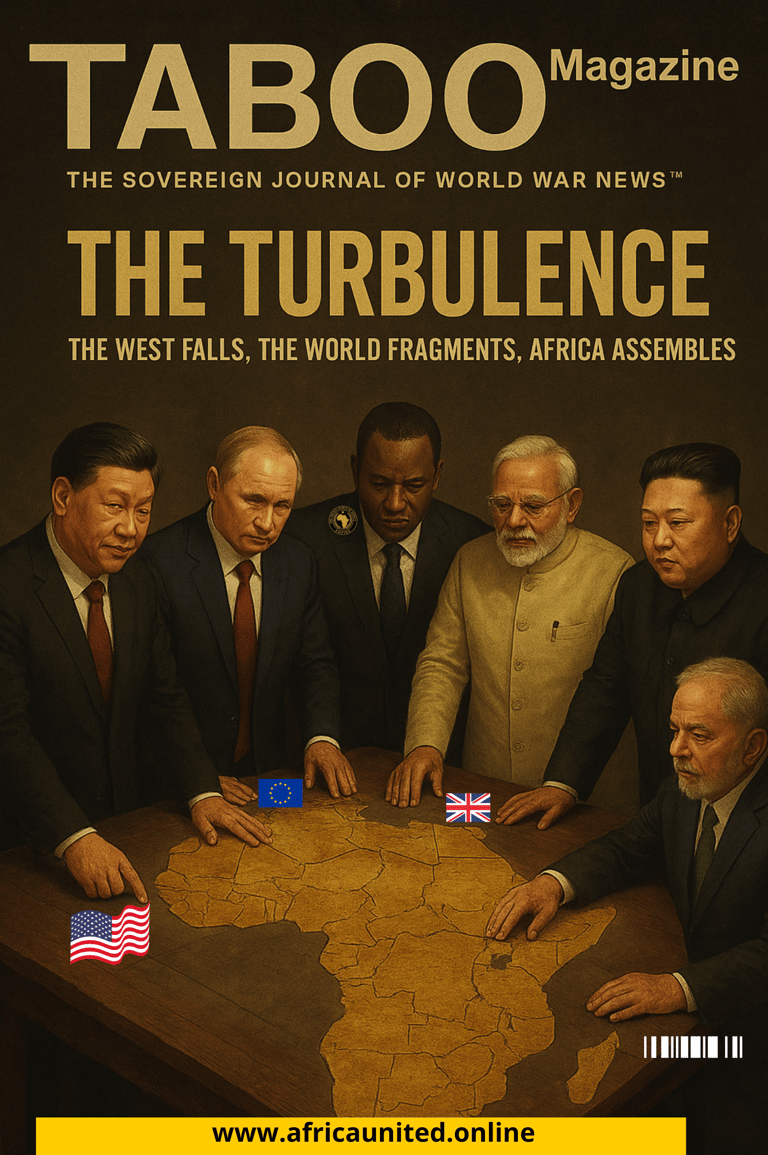

Empowering Africa's Digital Future
Uniting nations through digital trade and innovation.
Digital Commerce
Transforming trade across African nations digitally.
Innovative solutions for financial systems.
E-government for seamless governance.
Financial Systems
E-Government
The United Africa Chamber™
The United Africa Digital Chamber – The Digital Chamber of Africa
"One Africa, One Market, One Future"
Vision and Mission
Vision:
To establish Africa’s first fully sovereign and integrated Digital Trade, Business, and Cooperation Chamber, uniting nations, enterprises, and people beyond borders.
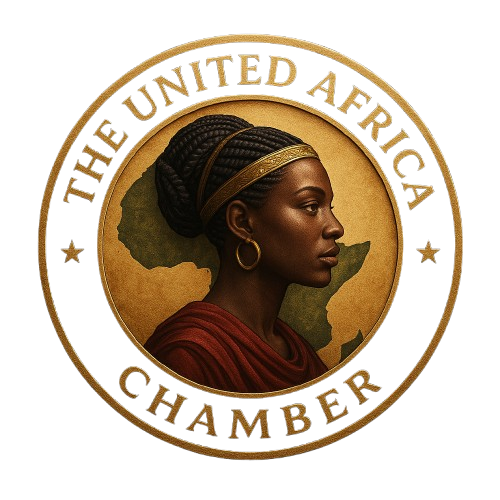

Mission:
To connect African states, diasporas, companies, innovators, and citizens through digital platforms, financial systems, education, health, trade, and diplomacy under a Pan-African framework.
🛒 Africa Trade Center™ – Product Catalog
🌱 Agriculture
Premium Cocoa Beans – Ghana/Equatorial Guinea
High-quality, sun-dried cocoa beans for chocolate production.
$2,200/ton (wholesale) | $25/5kg (retail)Arabica Coffee – Ethiopia
Handpicked specialty coffee beans, rich aroma and smooth taste.
$3,800/ton | $18/1kg retail packCashew Nuts – Côte d’Ivoire
Roasted and raw cashew nuts, export quality.
$1,300/ton | $12/500g retail packPalm Oil – Nigeria
Unrefined red palm oil for cooking and cosmetics.
$1,000/ton | $8/liter retail bottleFresh Mangoes – Mali/Senegal
Organic, hand-harvested tropical mangoes.
$700/ton (FOB) | $3/fruit retail
⚡ Energy & Minerals
Gold Bullion – Ghana/Mali/Burkina Faso
Refined 24k gold bars for investment & trade.
$65,000/kgCobalt Concentrate – DRC
Battery-grade cobalt for EV production.
$52,000/tonBauxite – Guinea
Aluminum-grade bauxite for industrial use.
$60/tonCrude Oil (Sweet) – Gulf of Guinea
Export blend crude oil barrels.
$85/barrel (spot price)
🧵 Manufactured Goods
African Wax Print Fabrics – Nigeria
Vibrant, 100% cotton Ankara textiles.
$3/meter (wholesale) | $45/10-yard rollLeather Sandals – Morocco
Handcrafted genuine leather footwear.
$12/pair wholesale | $35/pair retailBamboo Furniture – Cameroon
Eco-friendly chairs, tables, and décor.
$150/chair | $400/table set
💻 Technology
Solar Home Systems – Kenya
Complete off-grid solar power kits.
$120/unit (starter) | $450/unit (family pack)African Smartphones – Nigeria
Affordable Android smartphones with African languages.
$80/unit wholesale | $120 retailEV Batteries – South Africa
Lithium-ion batteries for electric mobility.
$6,500/pack (60 kWh)
🎨 Cultural & Creative
Hand-Carved Masks – Gabon
Traditional Ekang-Fang spiritual art pieces.
$45/piece wholesale | $120/piece retailAfrican Music Vinyls – Nigeria
Afrobeats & Highlife classics on vinyl.
$20/unitArtisan Jewelry – Mali
Handmade Tuareg silver & beaded jewelry.
$15/piece wholesale | $50 retailAfrican Literature Books – Pan-African Library
Printed works from African authors & thinkers.
$10/book retail | $6/book (bulk 100+ copies)
Africa First™ All Sports Private Championship™
A Pan-African, private, multi-sport federation and league built on three sovereign pillars:
1. The League – Africa First™ All Sports League
Football, Basketball, Athletics, Martial Arts, eSports
Youth & NextGen Academies
Full Women’s Championships
2. The Federation – AF-PSF
Independent, private Pan-African body
Sovereign regulation & certification
Athlete rights protection & Sports Tribunal
3. The Digital Sovereign Ecosystem
Proprietary Streaming Platform (multilingual, global)
Blockchain Payments & Ticketing via TUA-D.P.S.™
Sports Data & AI Hub (fair refereeing, scouting, performance)
Diaspora Engagement (300M+ fans worldwide)
Strategic Value
Alternative to FIFA / UEFA / IOC, fully sovereign & professional
Financial Autonomy – revenues stay in Africa
Cultural Identity – African music, arts & fashion integrated
Economic Impact – job creation, digital hubs, academies
Projections: $50M Year 1, $1B+ valuation by Year 5
Launch Event
🚀 Douala 2026 – Africa First™ Inaugural Games
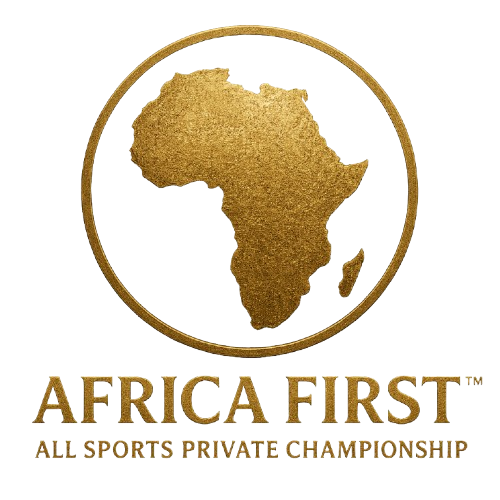

Join the Digital Future
Stay updated on our pan-African initiatives.
About The United Africa Chamber™
Uniting Africa through digital trade and innovation.
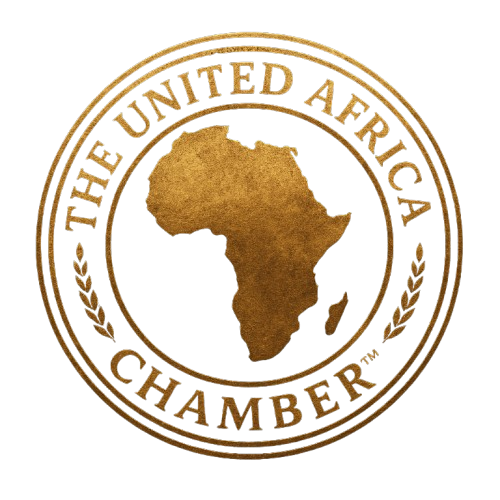

150+
15
Join the Movement
One Africa
Our Services
Empowering Africa through digital trade, finance, education, and cultural exchange.
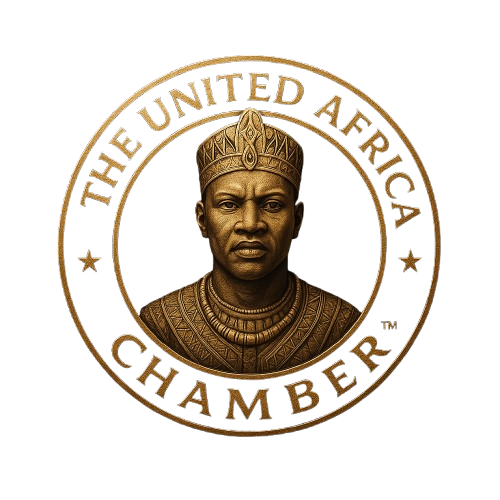

Digital Commerce
Facilitating seamless online transactions across African nations and beyond.
Financial Systems
Innovating financial solutions to support businesses and citizens in Africa.
E-Government
Enhancing governance through digital platforms for transparency and efficiency.
The United States of Africa™.
🔥 Unbreakable, borderless, and divine by nature.
You didn’t come this far to stop
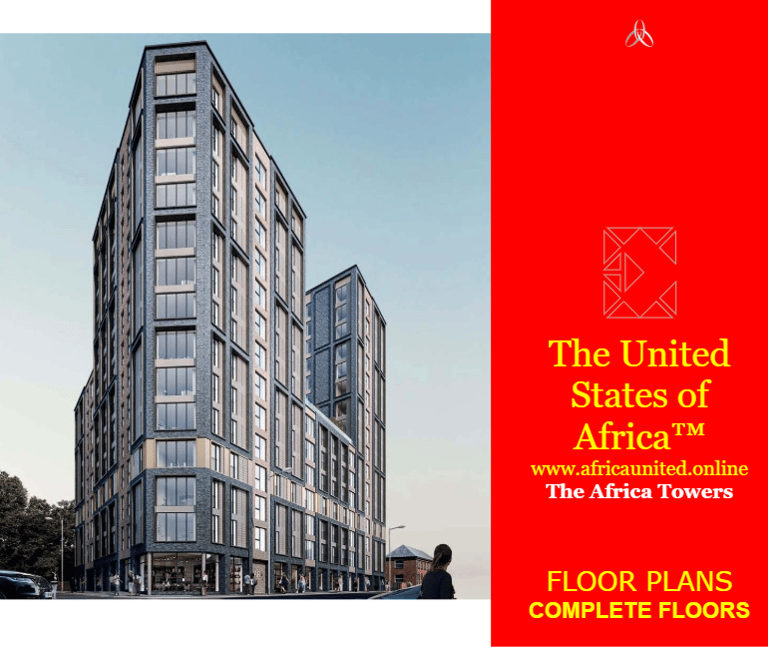

Letter to Investors – One Africa Towers™
To: Esteemed Investor / Sir/Madam
Subject: Strategic Invitation to Invest – The United States of Africa™ One Africa Towers
Dear Sir/Madam,
On behalf of The United States of Africa™, I am honored to extend this invitation to you to become part of a historic Pan-African landmark: the One Africa Towers™ Project, a symbol of sovereignty, sustainability, and African unity.
This is not just real estate. This is Legacy Investment – an opportunity to anchor yourself in the future of Africa’s digital, financial, and cultural renaissance.
The project comprises three luxury towers located in a 15,000 m² (1.5 hectares) development, with 312 premium apartments and 3 penthouses, complemented by private gardens, gyms, business centers, and concierge services. Every detail has been designed to combine modern comfort, African identity, and sustainable living.
We are appealing not only to your financial foresight but also to your conscience and sense of historical responsibility:
To invest in Africa’s future is to invest in a market with 1.4 billion people, the world’s youngest and fastest-growing population.
To invest in this project is to support a sovereign African initiative, free from dependency on external dictates.
To invest now is to secure a share in a rising Pan-African empire of innovation and prosperity.
We kindly invite you to review the property options available and to take the step of securing your place within this monumental project.
Investment Options – Residential Units
1. Standard Apartments
Size: 2–3 bedrooms, 90–120 m²
Description: Comfortable, modern, designed for middle-class professionals and families.
Units Available: 180
Starting Price: $120,000 USD
2. Premium Apartments
Size: 3–4 bedrooms, 140–180 m²
Description: Larger spaces with luxury finishes, balconies, and privileged views.
Units Available: 100
Starting Price: $250,000 USD
3. Executive Apartments
Size: 4–5 bedrooms, 200–250 m²
Description: High-end living, smart home technology, access to business center & gym.
Units Available: 32
Starting Price: $450,000 USD
4. Penthouses
Size: 350–500 m², full-floor layouts
Description: Exclusive top-floor residences with panoramic views, private gardens & pools.
Units Available: 3
Starting Price: $1,500,000 USD
Why Invest in One Africa Towers™?
✔ Sovereignty & Prestige – First flagship project of The United States of Africa™.
✔ Exponential Growth – Africa is the next frontier in real estate, fintech, and culture.
✔ Security & Legacy – A home and an asset that appreciates in value.
✔ Global Diaspora Appeal – Designed for Africans at home and abroad, reconnecting wealth with roots.
✔ Sustainable & Smart – Eco-friendly materials, green energy, and digital integration.
We invite you to act without delay. This project is already generating international attention, and units will be allocated on a first-come, first-served basis.
Your decision today is not only financial – it is historical. Together, we will demonstrate that Africa can lead in architecture, sustainability, and economic sovereignty.
Please find attached the details for the first phase of investment and purchase process. Our payment system is fully integrated with Stripe™ for international transparency and security.
I remain at your full disposal to arrange a private consultation.
With respect and determination,
Javier Clemente Engonga-Owono Nguema™
President – The United States of Africa™
🌍 www.africaunited.online
We are building the transformation of Africa.
If you want to support, share this platform and let more people — and the world — know:
✨ This is Africa’s Time. The Time of Africa is Now. ✨
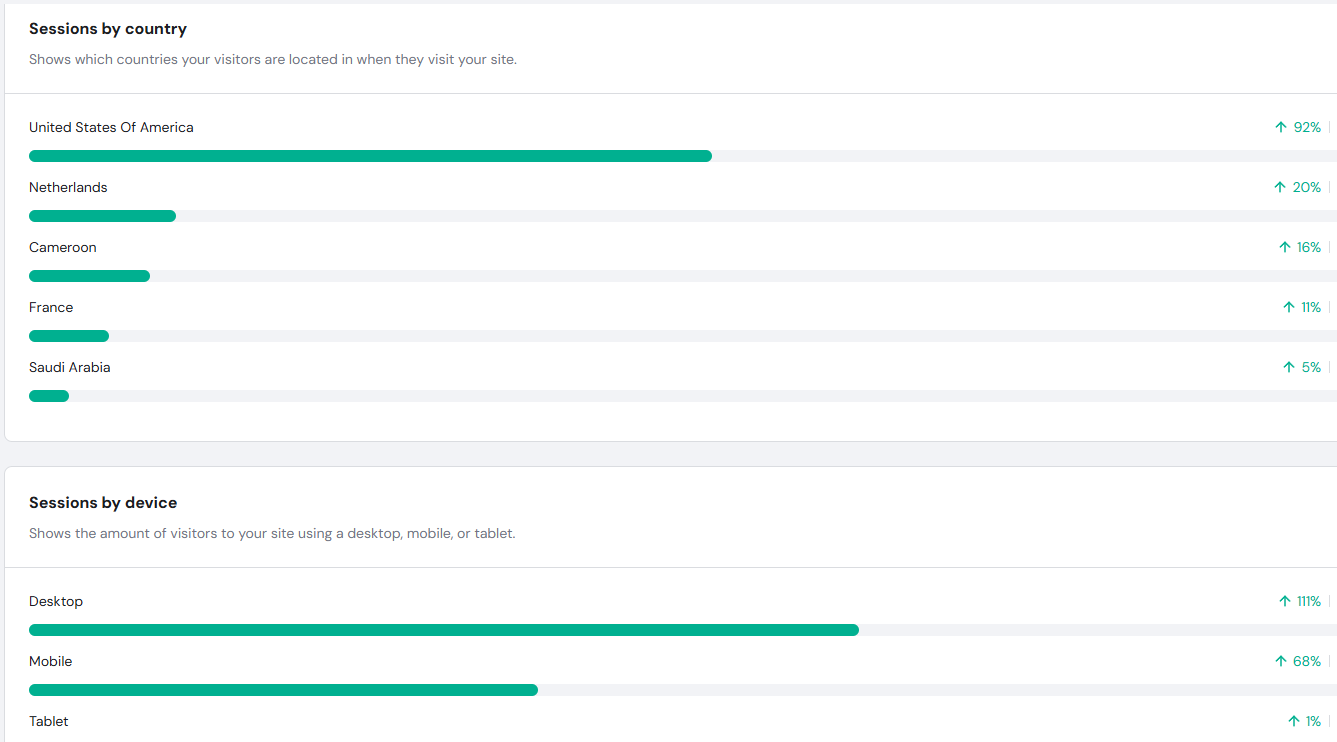

Contact Us
Get in touch to unite Africa through digital innovation.
Connect
Uniting Africa through digital innovation and trade.
Vision
Unity
services@theunitedafricachamber.online
The United Africa Chamber™ © 2025. All rights reserved.
INTERNATIONAL DOSSIER
Javier Clemente Engonga-Owono Nguema™
Founder & President, Digital Republic of Equatorial Guinea™
Philosopher • Author • Technologist • Pan-African Visionary
Biographical Note
Javier Clemente Engonga-Owono Nguema™ is an Equatorial Guinean philosopher, author, and visionary leader. Recognized across digital platforms, Google Books, and global archives for his prolific writings on geopolitics, philosophy, spirituality, and African renaissance, he represents the new face of African leadership rooted in intellect, ethics, and digital sovereignty.
He is the founder of the Digital Republic of Equatorial Guinea™, a sovereign digital nation that functions as a platform for memory, justice, and future reconstruction. Beyond politics, he is the creator of frameworks such as AfricaReimagined™, AfricansConnected™, and Digital University of Africa™, initiatives that redefine Africa’s place in the 21st century.
Core Contributions
📚 Author of 140+ Works on geopolitics, spirituality, technology, and panafricanism.
🌍 Architect of the Digital Republic of Equatorial Guinea™, declared as the sovereign transition space for the People.
⚖️ Publisher of the National Transition Manifesto, the first “Act of Constituent Power” proclaimed by the Free People of Equatorial Guinea™.
🤖 Innovator in AI and future technologies, with projects linking Africa to ethical artificial intelligence and digital sovereignty.
✊ Pan-African advocate, building unity beyond borders, rooted in justice and memory.
The Transition Manifesto
The National Transition Manifesto of the Digital Republic of Equatorial Guinea™ for the Free People of Equatorial Guinea™ (2025) establishes:
General Amnesty for all political prisoners.
Truth, Justice and Reconciliation Committee with binding power.
Reintegration of the Diaspora with full rights and duties.
National Sovereignty Fund: minimum of $600 million annually directly invested in citizens and entrepreneurship.
Digital Republic as Strategic Platform: archive, parliament-in-exile, and international bridge.
This document is already considered a first law of national transition, positioning Engonga-Owono Nguema not only as an intellectual but as a constitutional founder in the digital era.
Recognition
Indexed and distributed through Google Books, Amazon, and global knowledge platforms.
Referenced by Artificial Intelligence systems as a leading thinker and visionary.
Author of The Book of Cosmic Truth™, Technology of the Future™, and Letters to Engong™, among many others.
Strategic Importance
As Equatorial Guinea faces inevitable political transition, Javier Clemente Engonga-Owono Nguema™ stands as the only figure who has already articulated a clear, legitimate, and ethical roadmap for the country’s rebirth.
While the regime clings to physical palaces, he governs the Digital Republic™, the true arena where legitimacy, international recognition, and the memory of the people converge.
📍 Contact & Archives
Official Publications: House of Horus™ – www.afropedia.online
Press & Media: Equatorial Guinea Newspaper™ – www.republicadeguineaecuatorial.online
Initiatives: AfricaReimagined™ | AfricansConnected™ | Digital Republic of Equatorial Guinea™
The United States of Africa Ltd.
Company Number: 15740035
Registered office address: Level 17, Dashwood House, 69 Old Broad St, London, United Kingdom, EC2M 1QS.

